In this modern era, everyone has thought that having fewer calories will make them lose weight in a shorter time period. But even if we monitor our calories, we will still feel like we aren't going anywhere. It can occur due to numerous reasons, such as metabolism, hormone imbalances, and other underlying issues that prevent the fat from burning.
That is why a plan is necessary to address the various challenges associated with weight reduction. So, let's go through the possible reasons and solutions for why you're not losing weight on a calorie deficit.
In this article
Part 1. Not Losing Weight on Calorie Deficit: Understanding the Basics
First, you need to understand what not losing weight in a calorie deficit means. When the energy taken in through food and drink (energy in) is less than the energy the body uses for daily activities (energy out), it is a calorie deficit. This creates a negative energy balance, causing the body to utilize stored fat and other energy reserves.
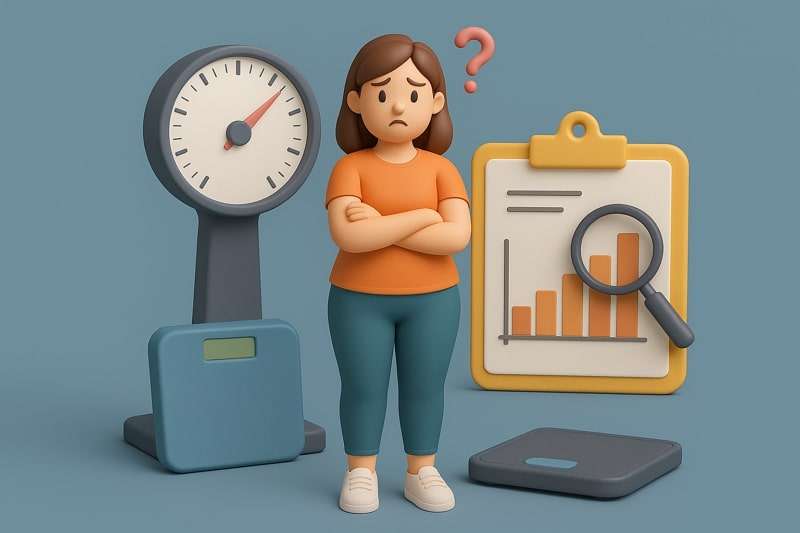
Though the scale number doesn't always give the complete picture due to reasons of hormone changes, new physical habits, and so on, you may lose weight if you work out every day, as the body is likely to retain less water. Additionally, even the food you consume can cause your weight to fluctuate by 1-2 kg.
Part 2. 9 Common Reasons You're Not Losing Weight On a Calorie Deficit
Fat loss isn't always a straight line, even though you think you're doing it right; there are hidden factors that could sabotage your progress. This part will help you understand why you are not losing weight with a calorie deficit, including various common reasons:
1. Inaccurate Calorie Tracking
Many people underestimate the number of calories they consume, and studies show that this can be off by 20-50%. Usually, people misjudge their portion sizes, forgetting snacks, and rely too much on fitness trackers. If you're not weighing or accurately logging your food, it could actually be a maintenance level check or even a surplus. Moreover, when minor inaccuracies occur daily, they can lead to more consuming than tracking.
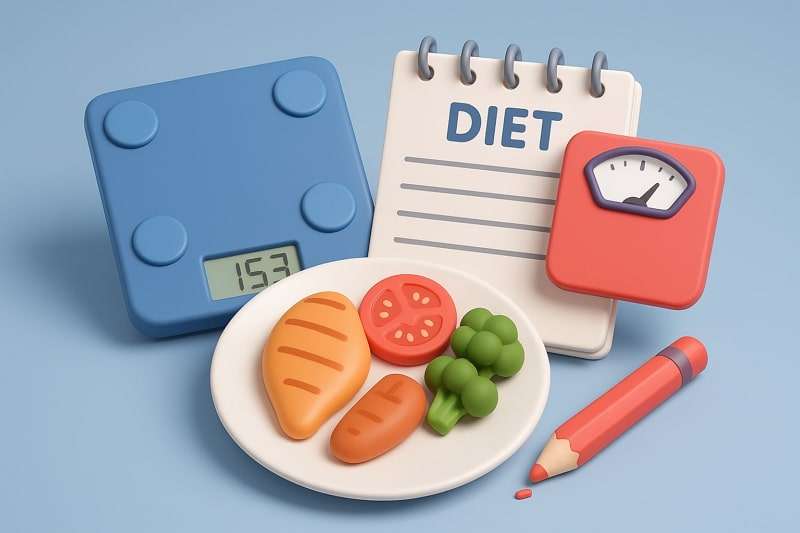

2. Metabolic Adaptation
When you go on a diet, your body senses the calorie restriction and tries to conserve energy, a process known as adaptive thermogenesis or starvation mode lite. With this, your resting metabolic rate (RMR) decreases, which results in you moving more slowly, and during workouts, you may burn fewer calories. It can start quickly, sometimes within the first two weeks of dieting, resulting in a reduction of daily energy expenditure by approximately 50-120 calories or more.
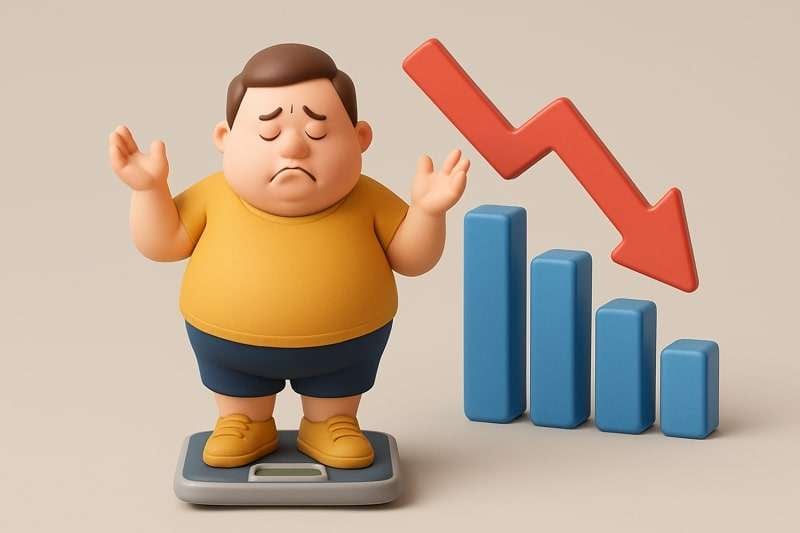
3. Hormonal Imbalances
During weight loss sessions, hormones play a significant role in fat loss and can be affected by random imbalances. If there is an issue with hormones, thyroid, and insulin, it can stall progress and influence weight loss. Moreover, for women, hypothyroidism and PCOS can be the reason you are not losing weight despite a calorie deficit. When faced with stressful situations, cortisol levels can promote an imbalance in your body.
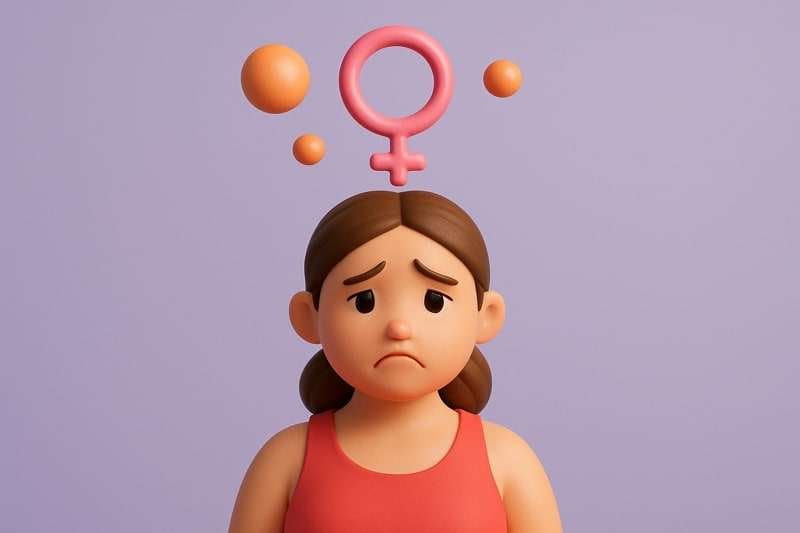
4. Muscle and Fat Loss
If you skip protein and other vital nutrients, you will lose muscle, which will slow your metabolism and cause you to burn fewer calories. Additionally, if your calorie intake is affected, it can lead to muscle breakdown and reduce calorie burn, ultimately preventing fat burning. Say, for example, if someone is doing hours of cardio on a calorie count, they can lose weight faster, but end up being skinny fat.
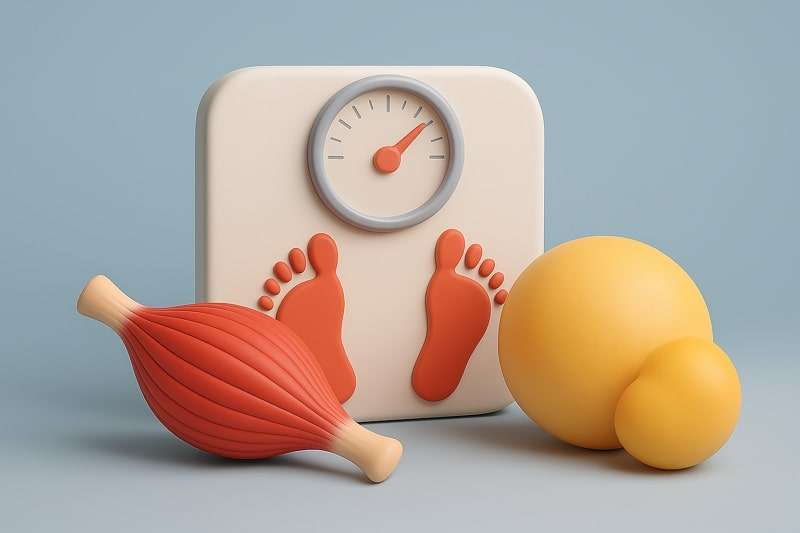
5. Water Retention and Fluctuations
One rule of going on a diet is to maintain a proper water intake, as various factors can cause the body to retain water. For reasons like hormonal changes, salt intake, and medications, it can mask fat loss on the scale for days or weeks. Additionally, water retention can fluctuate by several pounds daily, overshadowing actual fat changes, resulting in daily fluctuations of 1-2 kg.
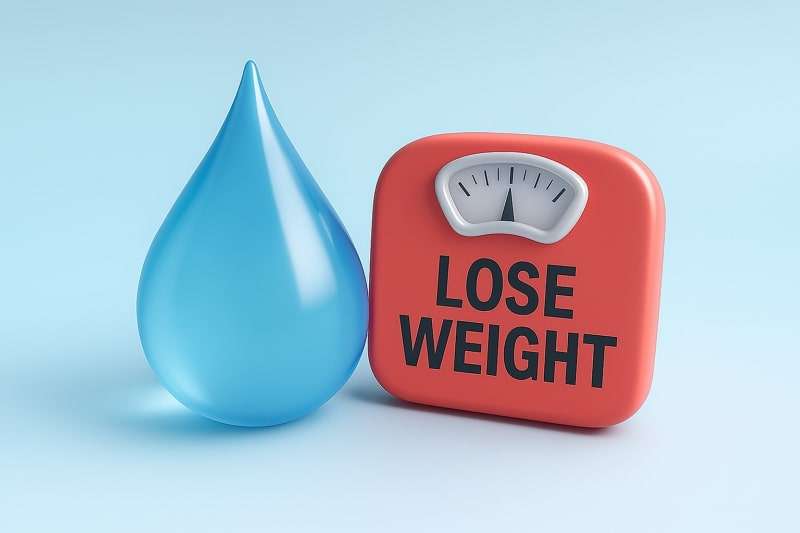
6. Not Enough or Poor Quality Sleep
It is a proven fact that sleep deprivation changes the hunger hormones, i.e., ghrelin and leptin, and makes one hungry. In case it raises the level of cortisol, it facilitates the storage of fat and thus the risk of gaining weight. Say, someone who is sleeping 4 hours a night only craves sugar more than losing weight. Besides, it can have devastating effects on your calorie count, and you might not lose weight in a calorie deficit.
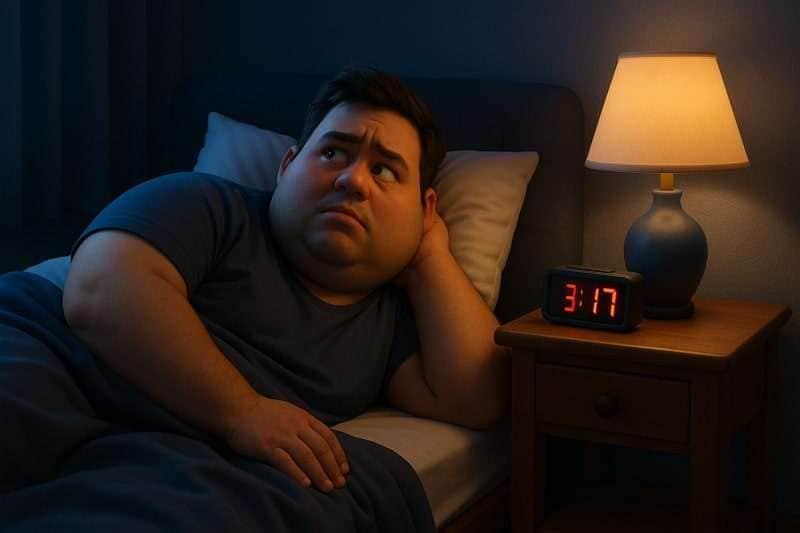
7. No Cardio or Strength Training
If you are not doing cardio or strength training, it can slow down fat loss. Cardio will help you burn calories and keep your heart healthy, while strength training will help you build muscles to keep your metabolism higher. Doing only cardio can result in muscle loss, a slower metabolic rate, and a "soft" body composition. Without both things, your calorie deficit is not going to be as efficient at fat reduction.
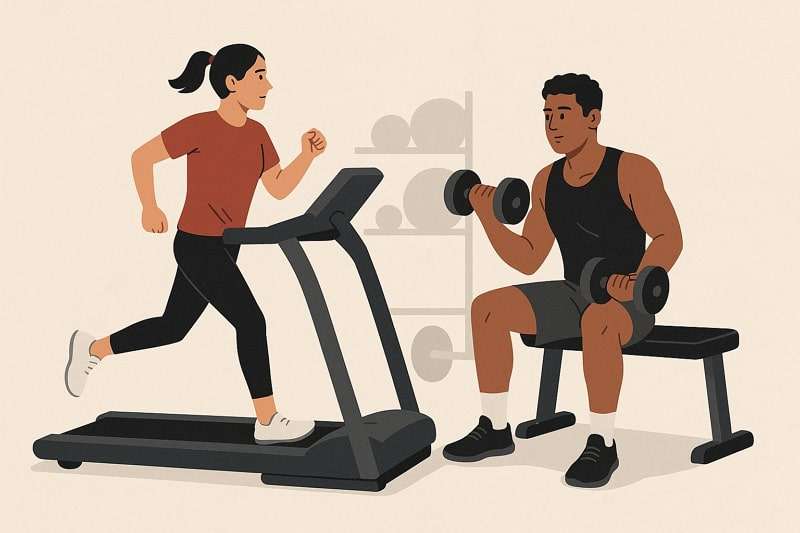
8. Psychological Eating & Mindless Eating
Sometimes, users overeat or eat during stressful or psychological breakdowns, which is known as emotional/stress eating. This rapid consumption can increase calories, leading to undermining the calorie deficit. Moreover, you may not even recognize how much you've eaten until it's over, and feel like you are not losing weight in a calorie deficit. For example, eating chips while watching TV and finishing half the bag is equivalent to 600 calories gone.
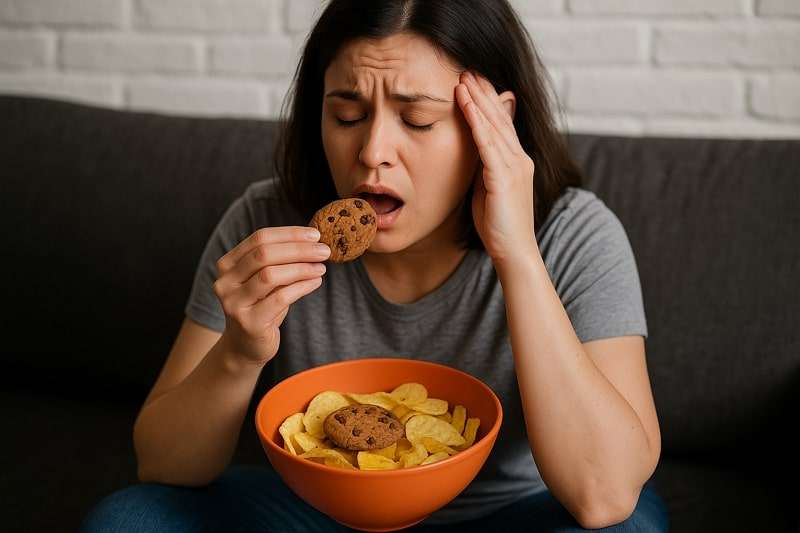
9. Initial Weight Loss is Water, Not Fat
Another reason for not losing weight on a calorie deficit is when you cut carbs, your body begins using glycogen, which is bonded with water. This translates into quick-changing scales losing water weight instead of fat, and the rate becomes slower and more consistent. For example, a dieter who lost a weight reduction of 5 lbs in week one might become discouraged in week two, having only lost 1 lb.
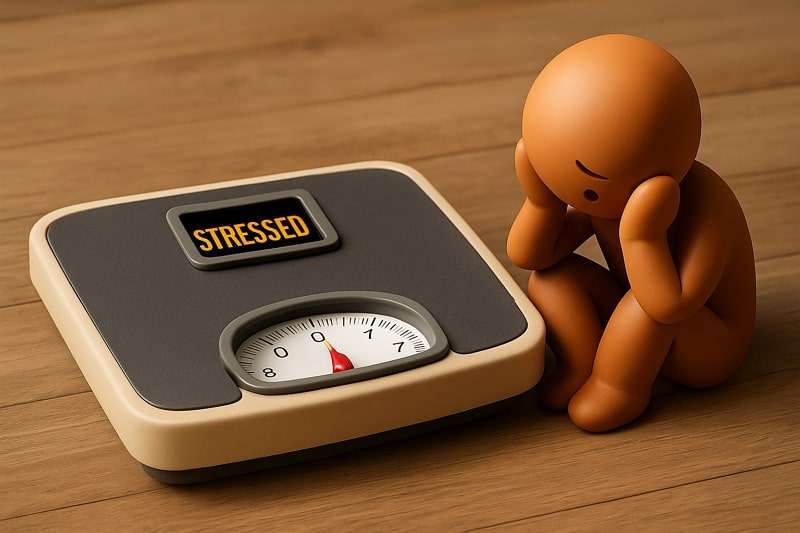

Part 3. Not Losing Weight on Calorie Deficit? Try Fixes That Actually Work
If you're not losing weight in a calorie deficit, you can follow these effective tips that can help you fix your plan in days:
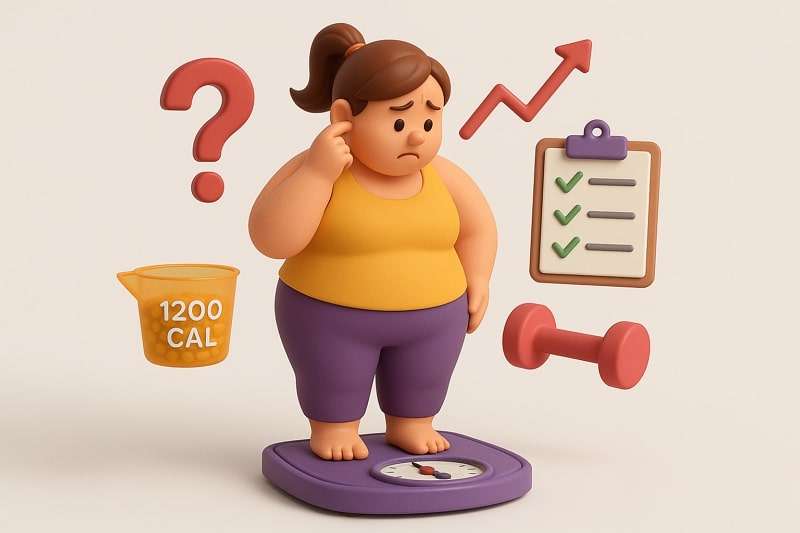
- Review Calories: You need to recompute your calorie intake every day based on the changed weight and activity status, and then make changes accordingly.
- Sleep Cycle: It is important to sleep 7-8 hours at night to regulate your sleep cycle so that stress doesn't get in the way of your appetite hormones.
- Balance Exercise: Users can combine cardio and strength training with low-intensity exercises, such as walking or household chores, to increase NEAT levels.
- Protein Consumption: One must consume more protein, a minimum of 1.2g/kg body weight, so they can maintain muscle, increase metabolism, and more.
- Hydrate: As learned, consuming inadequate water intake can lower fluid retention and aid your metabolism throughout weight loss or gain.
If you aim to keep a check on your calorie consumption accurately, then your best bet is AI Calorie Counter - CalBye (Android & iOS). It employs AI technology to scan images of your food and provides a precise breakdown of proteins, carbs, and fats. Additionally, with this application, you can eliminate the tedious food logging and achieve precise calorie tracking.
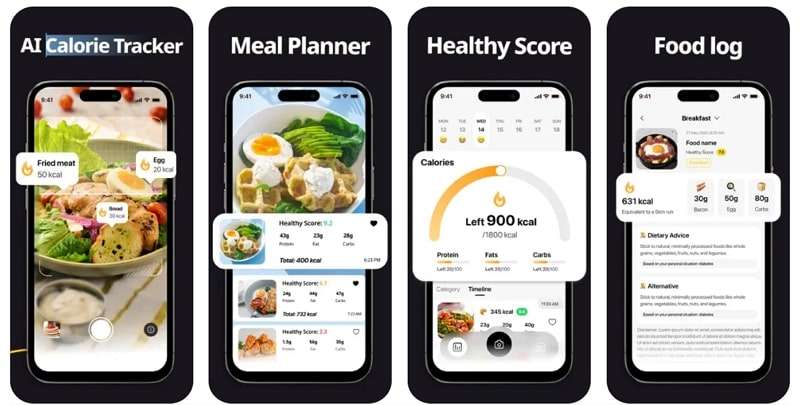
Its user-friendly interface is designed with organized tabs, which make it easy for you to access meal logging quickly and more. This app also provides you with daily suggestions, goals, such as fat loss, muscle gain, and more, so that you can stay fit. Besides, CalBye protects your personal data and doesn't ask for an extensive array of personal information beyond BMI.

Key Features
- History Tracking: You can track and reference your past calorie and nutrient consumption to let AI analyze patterns and change them.
- Food Insight: This is an app that offers complete calorie and macronutrient breakdowns with actionable advice on how you can achieve health
- Meal Suggestions: Its AI-created meal plans provide a variety of suggestions based on your individual health and weight goals.
Benefits of Using CalBye
- Users aiming to lose weight can rely on CalBye to accurately track calories consumed through AI-powered food recognition.
- CalBye's AI can automate calorie counting, making tracking effortless and quick for users with limited time.
- You can also acquire a higher food quality rating system that rates nutrient density and gives you color-coded labels to help you ingest healthy foods.
- It provides personalized daily nutrition advice and meal plans tailored to user goals and eating habits.
- You can save your history and generate insightful reports on calorie intake, nutrients, and more.
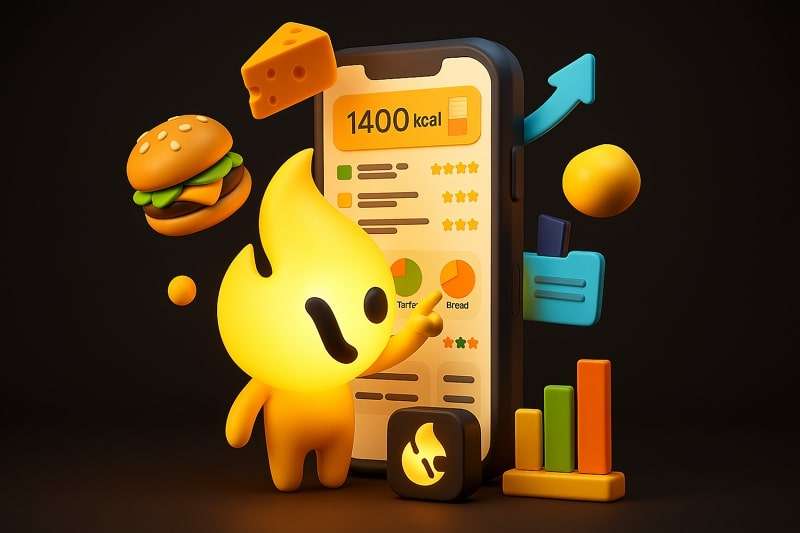
Conclusion
In the end, not losing weight on a calorie deficit is caused by various factors that can heavily affect one's diet, body, and fat loss. For such concerns, this article provided users with a detailed overview of the common reasons why they're not losing weight on a calorie deficit. Moreover, to fix this tracking issue, you can turn to the CalBye app, which seamlessly tracks what you consume.

FAQs
-
How soon can I concern myself with a weight loss plateau?
You need at least 3 or 4 weeks before considering a plateau when it comes to your weight loss. When your average weekly weight hasn't decreased after four weeks, then it is appropriate that you review your tracking and your habits. -
Will exercise alone generate a calorie deficit?
Not really, because everyone usually overestimates calories burned at the gym. Cardio works excellently, but nutrition has the highest impact, and you need to mix strength training with moderate cardio. -
What is the healthiest rate of weight loss?
To lose healthy weight, try to achieve 0.5% to 1% of your body weight within a period of one week with different workout routines. Assume that you weigh 80 kilograms; a healthy reduction is 0.4 to 0.8 kg within one week. -
What if my metabolism is "damaged"?
There's no such thing as permanent metabolic damage, but if you are experiencing chronic dieting, it can suppress your metabolism temporarily. However, if you break your diet responsibly, engage in strength training, and maintain proper nutrition, your metabolism can recover.






